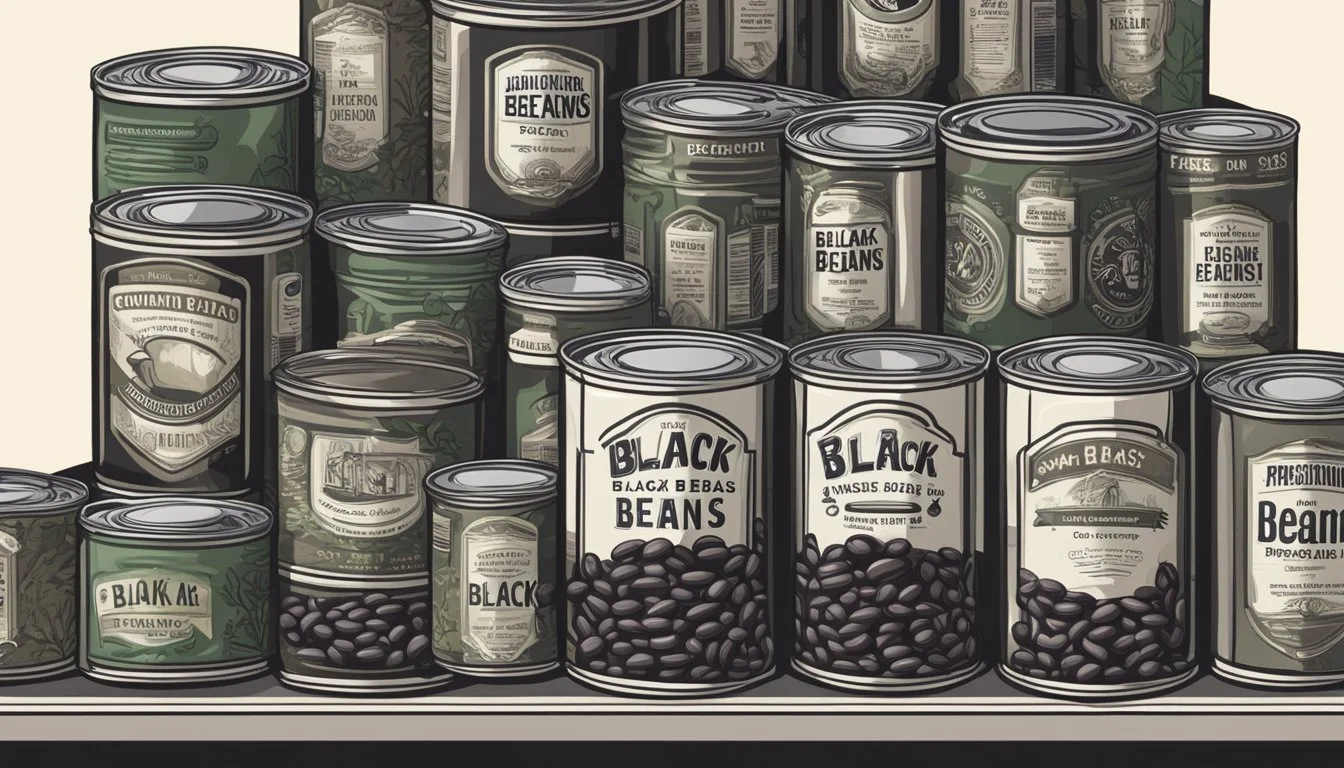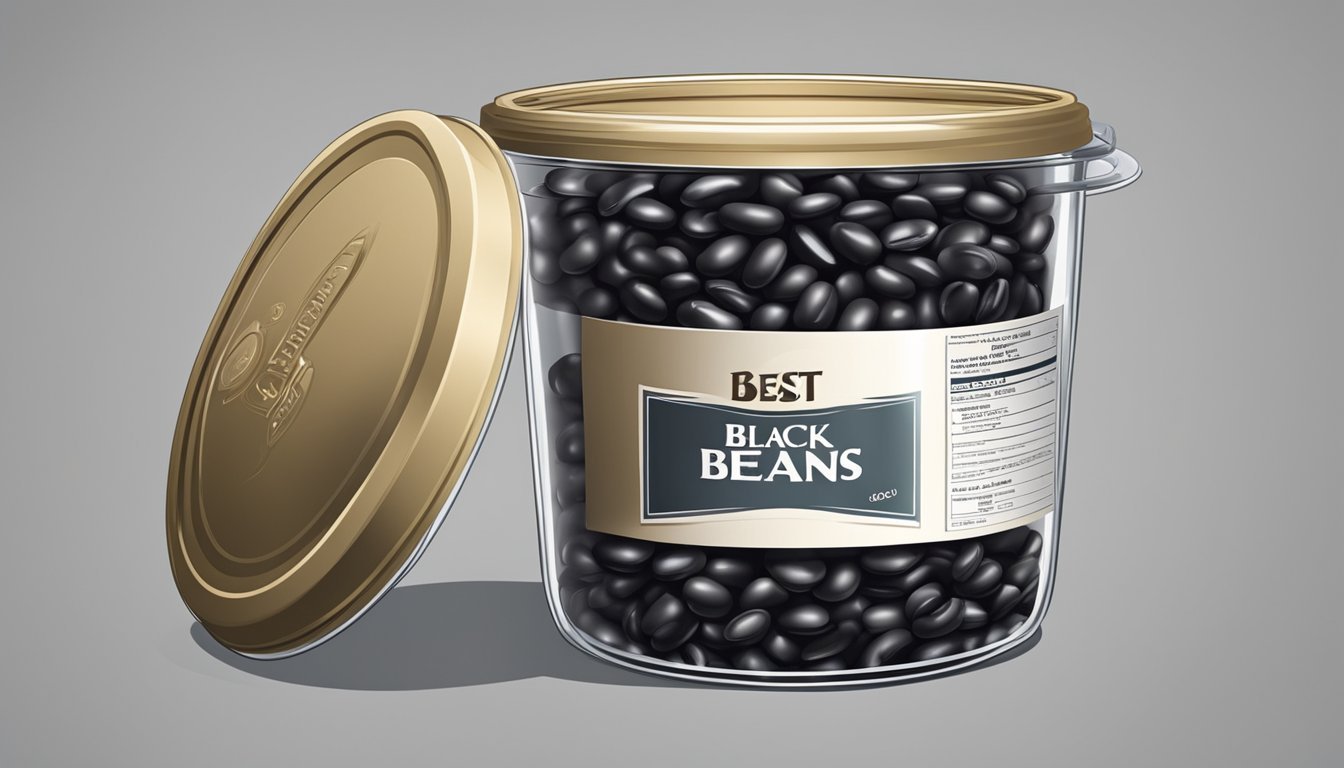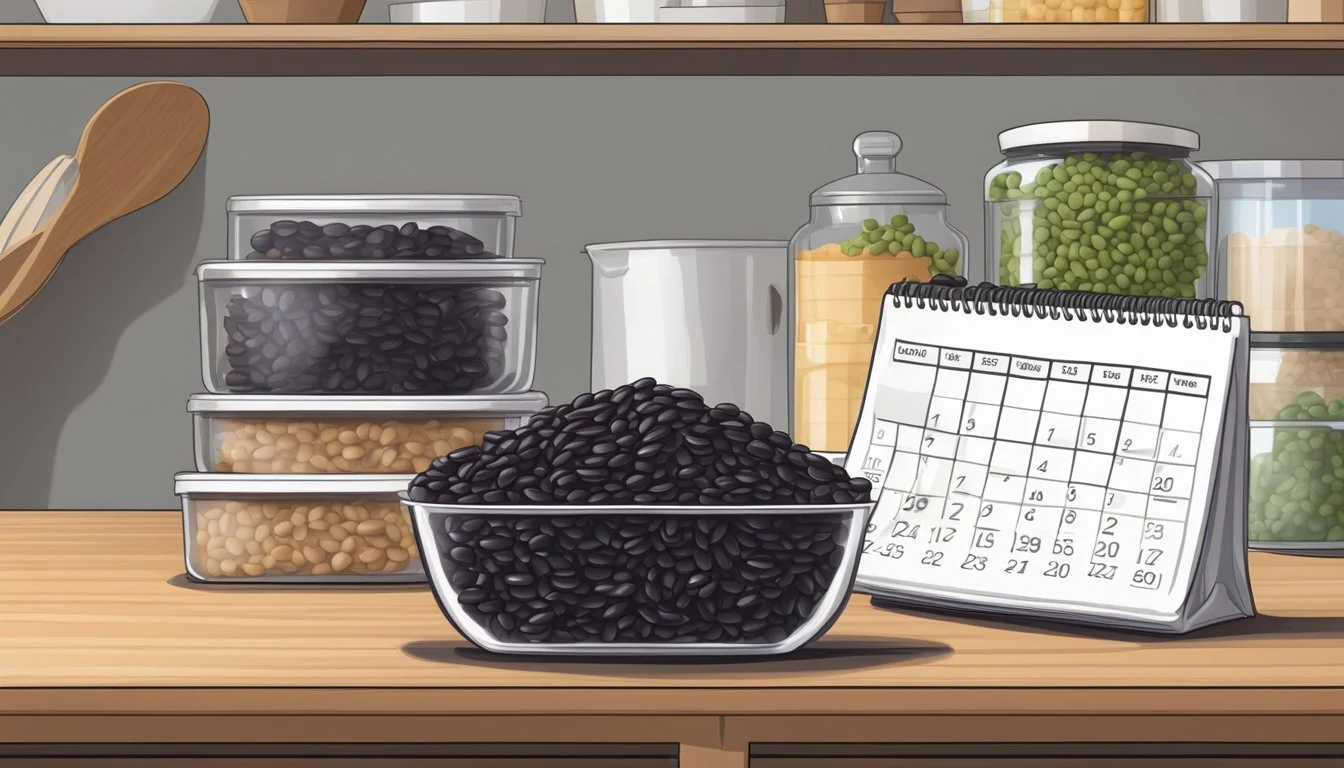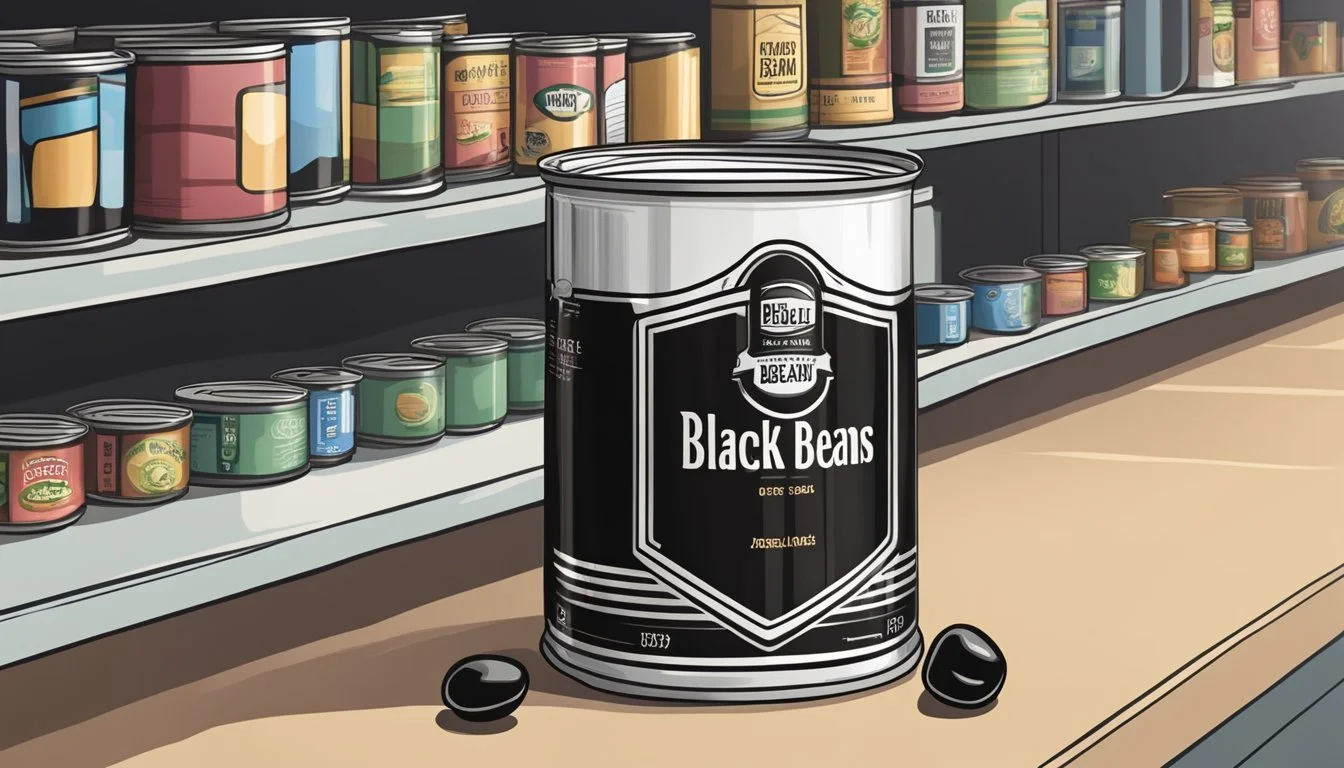How Long Do Black Beans Last?
Your Guide to Shelf Life and Storage Tips
Black beans (how long do black beans last?) are a staple legume known for their robust texture and high protein content, making them a popular choice for vegetarian and plant-based diets. Like many legumes, they provide not only protein but also fiber, vitamins, and minerals essential for a balanced diet. Understanding the shelf life of black beans is important for maintaining their nutritional benefits and ensuring food safety.
The longevity of black beans depends on their state: whether they are dried or cooked. Dried black beans, when stored properly in a cool, dry place in an airtight container, can last for years without losing their quality. On the other hand, once cooked, black beans have a significantly reduced shelf life and require refrigeration. Proper storage in airtight containers is critical to extending the usability and freshness of cooked black beans.
Cooked black beans, kept continuously refrigerated and sealed properly, typically maintain their quality for a few days. Recognizing signs of spoilage, such as off-odors or the presence of mold, is crucial in assessing their safety for consumption. Monitoring these factors ensures that individuals can enjoy black beans as a nutritious and tasty source of plant-based protein in their meals while minimizing the risk of food spoilage.
Types of Black Beans
Black beans come in various forms, each with a different shelf life and preparation method. Understanding these differences is essential for proper storage and culinary use.
Dried Black Beans
Dried black beans are a staple in pantries due to their long shelf life. If stored properly in a cool, dry place inside an airtight container, they can last for up to 1-2 years without losing quality. With a multitude of varieties available, dried black beans are versatile for numerous recipes.
Canned Beans
Canned black beans offer convenience as they are pre-cooked and ready to use. Their shelf life is significantly less than dried beans but can still last a few years if the can remains unopened and undamaged. Once opened, the beans should be transferred to a separate airtight container and refrigerated.
Cooked Black Beans
Once black beans are cooked, their shelf life diminishes to just several days when stored in the refrigerator. Cooked black beans must be placed in an airtight container and can be kept for up to one week in the fridge. For longer storage, they can be frozen for up to six months.
Storing Black Beans
Proper storage is crucial for maintaining the quality and extending the shelf life of black beans. Different storage methods are appropriate for dried, canned, and cooked black beans.
Pantry Storage
For dried black beans, one should store them in a cool, dry place such as a pantry or cupboard, far from any sources of moisture, light, and heat which can degrade the beans' quality. Airtight containers, like mason jars or sealed plastic bags, protect the beans from pests and preserve their freshness for up to 2-3 years.
Refrigerating Black Beans
Cooked black beans can be stored in the fridge where they will last for 3-5 days. They should be placed in an airtight container as soon as they reach room temperature to minimize the risk of bacterial growth and spoilage. Canned black beans, once opened, should also be transferred to a similar container if not used immediately.
Freezing Black Beans
For long-term preservation, one can freeze cooked black beans. To do so effectively, portion the beans into usable amounts and pack them into airtight containers or heavy-duty freezer bags. This method can keep the beans for 2-6 months without significant loss of texture or flavor when thawed properly.
Shelf Life and Spoilage
The shelf life of black beans varies based on their form—dried, canned, or cooked—and proper storage is crucial to prevent spoilage. One should be vigilant about expiration dates and signs of spoilage to avoid foodborne illness.
Dried Beans Shelf Life
Dried black beans, when stored properly in a cool, dry place, can last for a minimum of one year. Ensuring they are kept in a sealed container shields them from humidity and pests, potentially extending their shelf life even further.
Canned Beans Expiration
The expiration date on canned black beans is a reliable indicator of their shelf life. An unopened can has a long shelf life of several years, but it's essential to store cans in a cool, dry place away from light. One should always inspect cans for rust, dents, or bulges which can indicate compromise.
Cooked Beans Freshness
Once cooked, black beans should be stored in the refrigerator in an airtight container. They typically retain freshness for up to 5 days. If frozen, cooked black beans can last for about 6 months. For optimal freshness, let beans cool to room temperature before refrigerating to prevent moisture build-up that could lead to spoilage.
Signs of Spoilage
It is critical to know the signs of spoilage in black beans to ensure safety. Spoiled beans may have a sour smell, off taste, or visible mold. The texture may become slimy, and there might be discoloration. If any signs of spoilage are present or if beans have been left at room temperature for over 2 hours, they should be discarded to avoid the risk of foodborne illness.
Safety and Health Considerations
When dealing with black beans, or any legumes, it's critical to handle them properly to reduce the risk of foodborne illness. Monitoring the condition of the beans and adhering to safe consumption practices ensures that they are both safe and enjoyable to eat.
Foodborne Illness
Foodborne illness can occur when consuming black beans that are improperly stored or cooked. Harmful bacteria such as salmonella or Clostridium botulinum can grow in conditions where black beans are left at room temperature for too long or when cooked beans (how long do cooked beans last?) are improperly refrigerated. The symptoms of food poisoning can range from mild discomfort to more severe health issues.
Safe Consumption Practices
To avoid the growth of harmful bacteria and ensure safe consumption of black beans:
Storage: Store dry black beans in a cool, dry place, and cooked black beans in the refrigerator within two hours of cooking.
Cooking: Thoroughly cook black beans to eliminate any bacteria.
Hygiene: Maintain clean cooking environments and use clean utensils to handle black beans.
Expiry: Discard black beans if they show signs of spoilage like mold, an off smell, or a strange taste.
By following these guidelines, consumers can enjoy black beans as a nutritious part of their diet without compromising safety.
Preparing and Cooking Black Beans
When preparing black beans, one needs to consider two pivotal stages: the initial soaking and the subsequent cooking methods. Proper soaking can lead to less cooking time and a better texture, while correct cooking methods can enhance the beans' inherent flavor, making them a versatile component in many meals ranging from salads to soups and stews.
Soaking Dried Beans
Before cooking, dried black beans often require soaking. Overnight soaking is the traditional method, which involves submerging the beans in a large bowl of water for at least 8 hours, which allows them to absorb moisture and cook more consistently. For those short on time, a quick soak method can also be utilized where beans are boiled for a few minutes and then left to stand for an hour off the heat.
Soaking Method Time Required Overnight Soak 8 hours or more Quick Soak 1 hour
Cooking Methods
Black beans can be cooked on the stovetop in a pot of simmering water. Typically this process can take anywhere from 1 to 2 hours, depending on whether they were pre-soaked. One can also use pressure cookers or slow cookers to reduce cooking time or enhance flavors through even heat distribution. Black beans absorb flavors from seasonings, making them suitable for a wide range of dishes, such as chili, dips, and even in unconventional recipes like brownies. The key is to maintain a gentle simmer and keep the beans covered with water.
Cooking Method Medium Stovetop Pressure Cooker Slow Cooker Soaked Beans 1-2 hours 25-30 min 6-8 hours Unsoaked Beans 2-3 hours 40-50 min 8-10 hours
During cooking, it's important to check the beans' tenderness and make sure they reach the desired consistency without becoming too mushy. They can then serve as a key ingredient in a nutritious meal or a hearty component of stews and soups.
Freeze-Thaw Process
Properly freezing and thawing black beans is crucial for maintaining their quality. The process involves specific steps that ensure the beans remain flavorful and their texture stays intact throughout freezing and subsequent thawing.
Proper Freezing
To freeze black beans, one should:
Cool the beans to room temperature before freezing to prevent ice crystal formation.
Use a freezer bag or vacuum-seal them to minimize air exposure.
Undercook the beans slightly if they will be cooked again after thawing to maintain their texture.
Defrosting Black Beans
When defrosting black beans, one can:
Thaw them in the refrigerator for several hours or overnight.
For a quicker method, place the frozen beans in a colander and run cold water over them until they are thawed.
Thawed beans should be consumed promptly and never refrozen.
Freezer Burn Prevention
To prevent freezer burn and protect the quality of black beans in storage, one should:
Ensure beans are in an airtight container or tightly sealed freezer bag.
Squeeze out as much air as possible before sealing to reduce the risk of freezer burn.
Label the bag with the date of freezing; consume within 3-4 months for optimal quality.
Maximizing Bean Quality
To ensure black beans maintain their best quality, it is crucial to focus on optimal storage conditions, preserving flavor and texture, and implementing strategies to prevent waste.
Optimal Storage Conditions
Dried black beans demand a cool, dry place, optimally at a temperature range of about 50-70°F. An airtight container is essential to protect them from moisture and oxygen, both of which can degrade quality. When properly stored this way, they can last for up to a year.
For cooked black beans, they should be stored in the refrigerator within two hours of cooking. An airtight container or resealable plastic bags are best, and the temperature should be kept below 40°F. These conditions can keep beans fresh for approximately 5-7 days.
Maintaining Flavor and Texture
To retain the rich flavor and pleasing texture of black beans:
Allow cooked beans to cool to room temperature before refrigeration.
Transfer them to an airtight container to minimize exposure to air.
This practice helps maintain taste and prevents the beans from becoming overly soft or mushy.
Preventing Waste
Beans approaching the end of their optimal storage life can still be used if no signs of spoilage are present. Inspect beans visually and by smell before use; discard any that have an off odor, flavor, or appearance. Regularly rotating stock and using older beans first further prevents waste and ensures beans are consumed when they are of the best quality.
Additional Tips and Tricks
Maximizing the longevity and quality of black beans involves strategic storage solutions and preparation methods. This section equips the reader with focused advice on handling black beans for future use and considerations for digestive comfort.
Portioning and Reusing Beans
When storing cooked black beans, it's practical to portion them out before freezing. For ease of use, they should store them in one or two-cup servings, depending on their typical usage in recipes. This prevents thawing more beans than necessary, maintaining quality and nutrients. It's crucial to use airtight containers or zip-top freezer bags to circumvent freezer burn. Cooked black beans can be seamlessly integrated into soups, stews, or dips, making them a versatile leftover to have on hand.
Managing Gas and Digestion
Black beans, as with other legumes, are high in fiber and can cause gas in some individuals. To minimize this, one can rinse canned beans to remove excess sodium that contributes to indigestion. For beans cooked from dry, they should soak them with a piece of kombu (how long does kombu last?) or add a bay leaf to the cooking water, which are methods thought to help reduce gas. Additionally, integrating black beans gradually into the diet allows the digestive system to adapt to the increased fiber content. Properly refrigerated cooked black beans should be consumed within three to five days, while unopened canned beans can last significantly longer on the shelf.
Conclusion
When handling black beans, quality and safety are paramount. Cooked black beans, when stored correctly, have a refrigerated shelf life of 3 to 7 days. For optimal longevity, one should place the beans in an airtight container at a cool temperature once they have cooled down post-cooking.
To verify the freshness of black beans, one needs to be vigilant for any signs of spoilage such as mold, unpleasant odor, or an off taste. These indicators suggest that the black beans should not be consumed.
For those preparing meals in advance, knowing the correct storage methods ensures that black beans remain a nutritious and safe addition to meals. To extend the shelf life, one may also consider freezing black beans, which can last up to 6 months when properly sealed.
Here's a quick reference for storing black beans:
In the pantry: Keep uncooked black beans in a cool, dry place.
In the fridge: Store cooked black beans in an airtight container for 3 to 7 days.
In the freezer: Freeze beans in a sealed container for extended preservation.
Remember, proper storage goes hand in hand with cooking practices. Black beans should be cooked until tender, and if desired, one can enhance their flavor by adding seasonings such as garlic or onions. Ensuring beans are thoroughly cooled and dry before refrigerating prevents moisture buildup, which could lead to spoilage.
By adhering to these storage norms, black beans can contribute to a range of healthy, quality meals while maintaining their nutritional value and taste.








